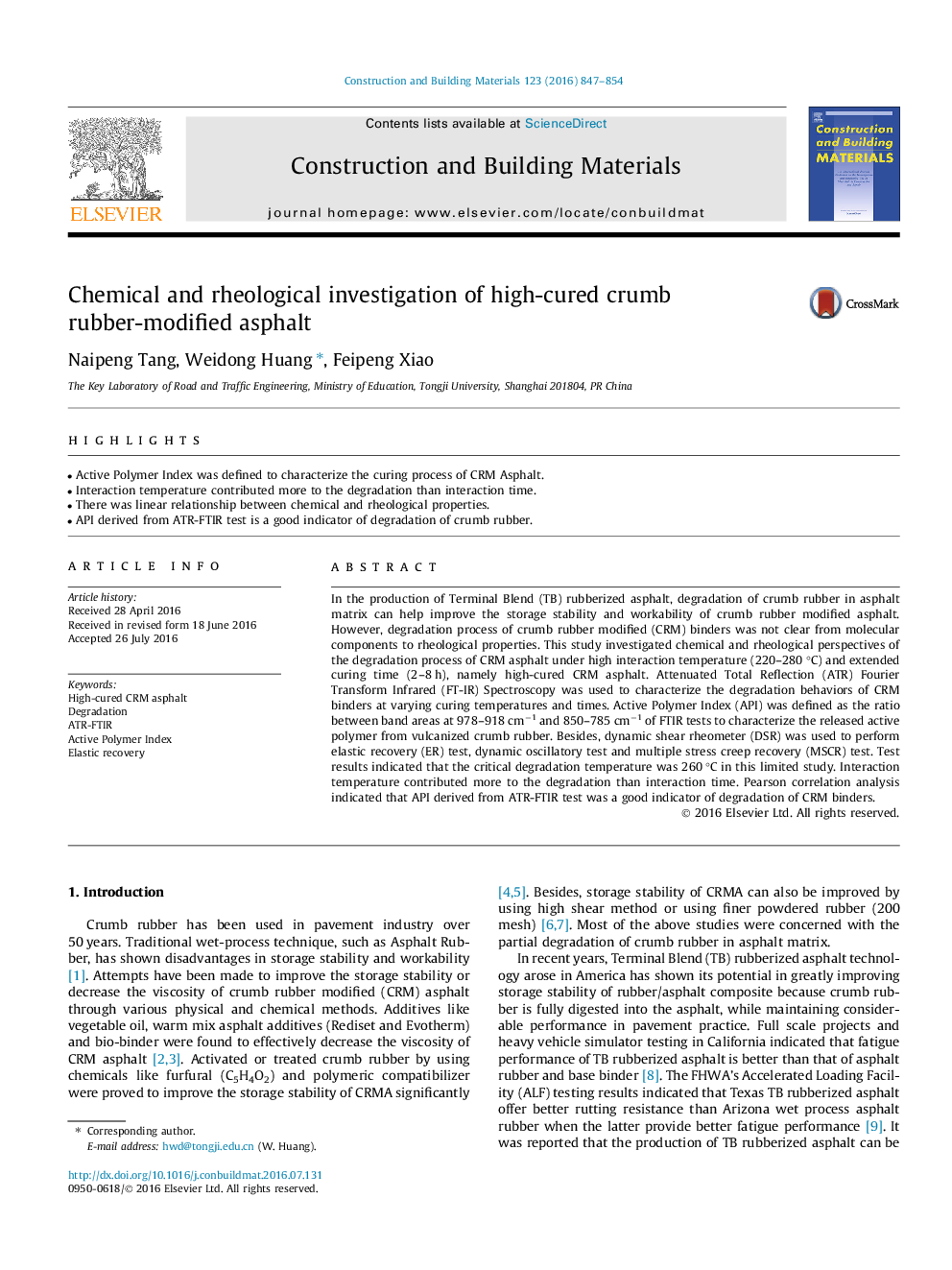| Article ID | Journal | Published Year | Pages | File Type |
|---|---|---|---|---|
| 6717824 | Construction and Building Materials | 2016 | 8 Pages |
Abstract
In the production of Terminal Blend (TB) rubberized asphalt, degradation of crumb rubber in asphalt matrix can help improve the storage stability and workability of crumb rubber modified asphalt. However, degradation process of crumb rubber modified (CRM) binders was not clear from molecular components to rheological properties. This study investigated chemical and rheological perspectives of the degradation process of CRM asphalt under high interaction temperature (220-280 °C) and extended curing time (2-8 h), namely high-cured CRM asphalt. Attenuated Total Reflection (ATR) Fourier Transform Infrared (FT-IR) Spectroscopy was used to characterize the degradation behaviors of CRM binders at varying curing temperatures and times. Active Polymer Index (API) was defined as the ratio between band areas at 978-918 cmâ1 and 850-785 cmâ1 of FTIR tests to characterize the released active polymer from vulcanized crumb rubber. Besides, dynamic shear rheometer (DSR) was used to perform elastic recovery (ER) test, dynamic oscillatory test and multiple stress creep recovery (MSCR) test. Test results indicated that the critical degradation temperature was 260 °C in this limited study. Interaction temperature contributed more to the degradation than interaction time. Pearson correlation analysis indicated that API derived from ATR-FTIR test was a good indicator of degradation of CRM binders.
Keywords
Related Topics
Physical Sciences and Engineering
Engineering
Civil and Structural Engineering
Authors
Naipeng Tang, Weidong Huang, Feipeng Xiao,
